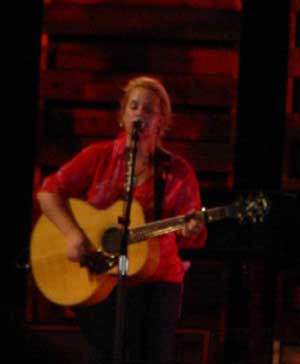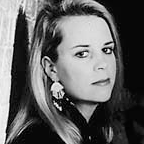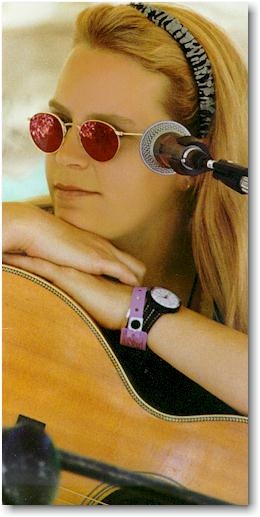


 |
birthday: february 21 marital status: single eye color: brown hair color: the blond one height: 5' 3" first song: written at age 7, about a bumblebee squashed on the sidewalk. favorite movie: to kill a mockingbird favorite tv show: the larry sanders show favorite book: parting the curtains: interviews with southern writers by daynne romine powell favorite drink: coffee favorite song: "kung fu fighting" favorite sport: boy watching favorite store: crate & barrel favorite foods: soft-shell crabs and beignets |